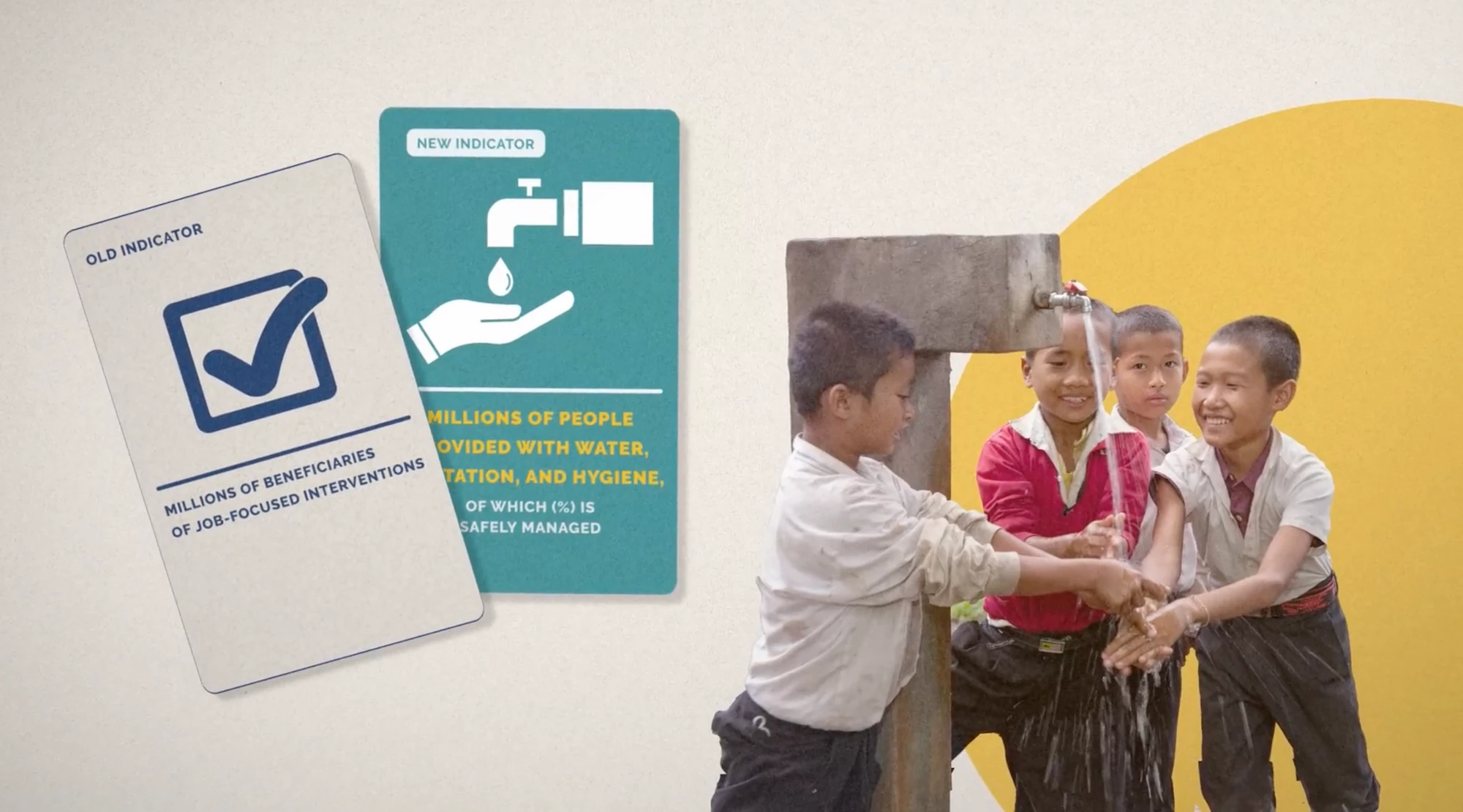 Photo credit: Bart Verweij/World Bank
Photo credit: Bart Verweij/World Bank
Our vision at the World Bank Group is to create a world free of poverty on a livable planet. But how do we transform that vision into impact? How do we ensure that more women have access to clean water? How can we connect more people to better jobs? How do we bring more gigawatts of renewable energy online, including in small states and fragile and conflict-afflicted countries?
A key component of this work is measuring outcomes rather than inputs and focusing on results that further our aim to improve people's lives and livelihoods. For example, rather than counting how many of our projects have a gender component, we will report on how much they advance gender equality and economic opportunities. Instead of showing how many people have access to financial services, we will focus on the number of people and businesses that use them. The same mindset shift needs to apply to all key areas of development that help us deliver on our mission.
To guide us in these efforts, the World Bank Group is adopting a new scorecard, with information to be released in phases ahead of a full rollout at our Annual Meetings in October. With the introduction of this new scorecard, the World Bank Group is doubling down on its commitment to being more accountable and transparent, making evidence-based decisions, deepening our partnerships, and driving our efforts toward achieving tangible outcomes.
The scorecard is a real game changer. It will help us gauge how far we have come in solving some of the world's most stubborn challenges today — from poverty to climate change to food insecurity and beyond. It will also show us where we have more work to do.
How It Will Work
This new scorecard builds on previous efforts to determine our progress but with greater selectivity, rigor, and transparency. The indicators have been carefully selected through wide consultation with shareholders and partners. The scorecard, and the detailed methodologies underlying the indicators, will be published online, making the data accessible and easier to harmonize with other multilateral development banks. The goal is to measure key outcomes, manage with evidence, and communicate results.
The centerpiece of this scorecard will be 22 indicators designed to show the progress of our work in the most critical development areas. A more detailed breakdown of the data than before will also enhance our ability to disaggregate results by gender, youth, region, country group, and other parameters, improving our ability to make the right decisions for development.
For instance, our financial commitments to education may grow steadily, but is that enough to claim success? According to our estimates, seven in 10 children in low- and middle-income countries face inadequate schooling. Our disaggregated data will tell us whether we deliver results in places that need them most.
Furthermore, the introduction of a single scorecard will harmonize definitions and align calculation methods so that we operate not as the International Bank for Reconstruction and Development (IBRD), the International Development Association (IDA), the International Finance Corporation (IFC), or the Multilateral Investment Guarantee Agency (MIGA), but as one World Bank Group. This is what our clients expect and what we will deliver.
Clients often tell us our financing is helpful. Still, our knowledge and convening power make a genuine difference. The results narratives that are part of the scorecard will contribute to our knowledge and expertise, along with financing to shape action, something that goes beyond quantitative data.
Tracking For Success
In building this scorecard, we are engaging shareholders, partners, civil society organizations, and our Independent Evaluation Group. We are now measuring what matters: how people’s lives have improved.
Within the World Bank Group, the new scorecard will become our internal roadmap, guiding our teams as they fine-tune their work for better outcomes. We hope the new scorecard will set us on a course to adopt uniform reporting standards so we all – donors, staff, clients, and counterparts – gain better insight into the impacts of our work. That's how we'll turn our vision into impact.


Join the Conversation